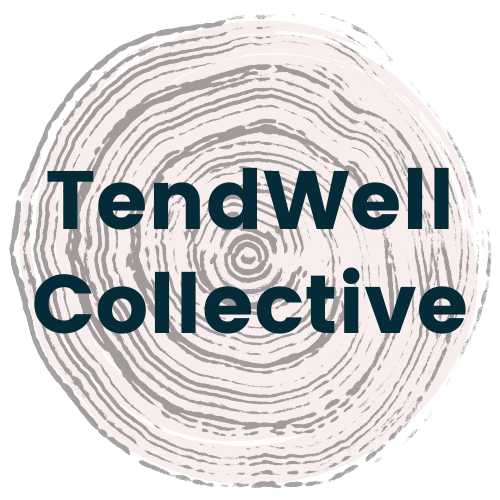
Our Inspiration & Resources
We are constantly inspired in our on-going journey of learning and unlearning. This is an evolving collection of inspiration and resources organized in relation to our Values. Many of these resources apply to multiple of our values, and this list is in no way exhaustive.
While we highlight a specific format (e.g. podcast, book, video, etc), most works are available in a variety of formats to best align with your learning style or abilities. You can also follow the trail of links to explore and go deeper.
We’ve tried to identify free or financially accessible resources. And we honor the people who created these works and resources. Please support and financially compensate these humans, their work, and communities as you are able.
We have a Bookshop with even more of our favorites. If you order using our affiliate links, you’re supporting independent, local bookstores and TendWell (we receive a commission if you click and make a purchase).
This is a Community.
-

"The Art of Gathering" by Priya Parker
Read/listen to the book.
Or listen to Priya Parker on Brené Brown's “Unlocking Us” podcast: “We dig into what it means to come together, why connection requires intention, and the most often-invisible structures inside our most meaningful gatherings.”
Also visit Priya Parker’s website.
-

BetterUp Article on Community by Maggie Wooll
A primer blog post on the types and benefits of community: “The word “community” is used so often today, it’s reached buzzword status. And when the term is thrown around in countless contexts, it’s easy to lose sight of the importance of community - and how to develop communities that add purpose and joy to our lives.”
We strive to not cause harm.
-
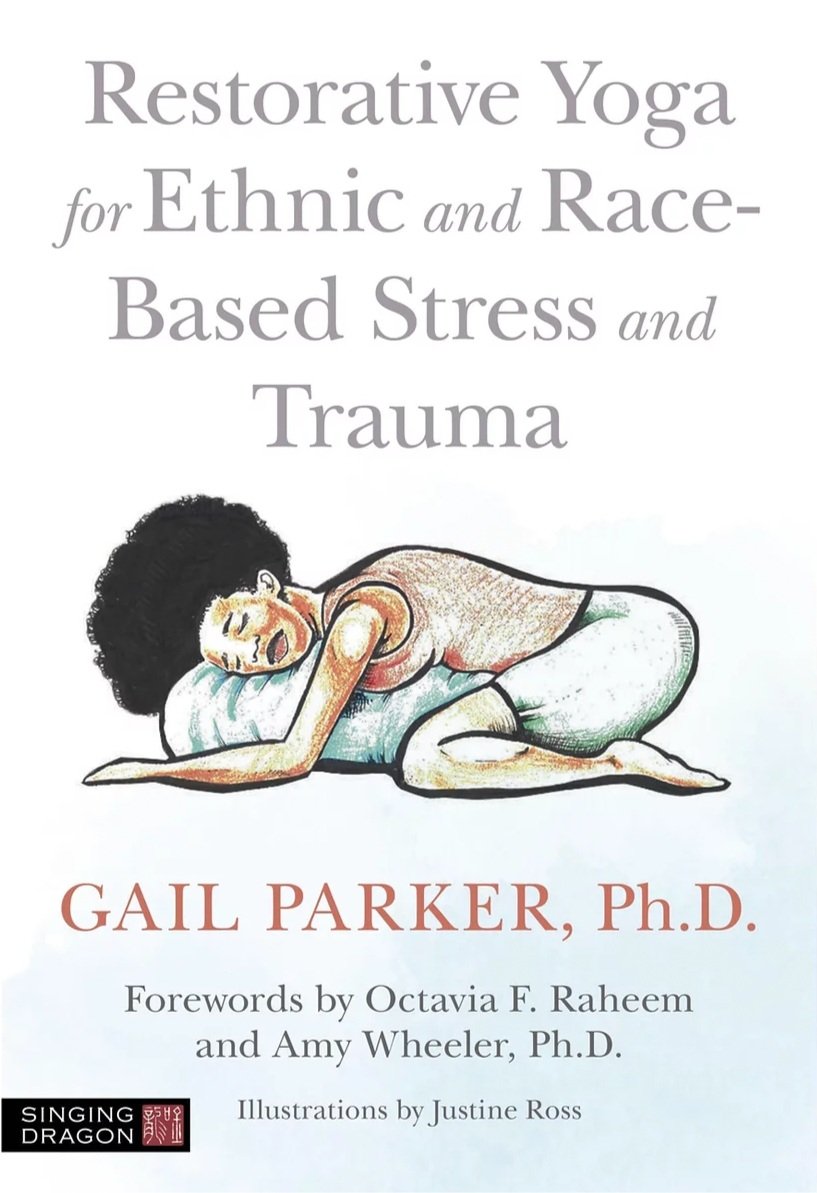
"Restorative Yoga For Ethnic and Race-Based Stress and Trauma" by Dr. Gail Parker
About the book: “Presenting ways in which Restorative Yoga can contribute to healing emotional wounds, this book invites yoga teachers, therapists and practitioners to consider the psychological impact of ethnic and race-based stress and trauma. It aids in the process of uncovering, examining, and healing one's own emotional wounds and offers insight into avoiding wounding or re-wounding others.”
-

"Harm vs. Hurt" w/ Resmaa Menakem & Rev. angel Kyodo williams (excerpt)
From Rev. angel Kyodo williams: “Harm is a process, and it is extended over time. We are living in a culture that allows us to commodify everything; our historical harm, our ancestral harm, our generational harm, everything. How are you moving through the clean & dirty pain of your life? How do we move from “forced” to the choice of “presenced” embodied practice?”
We are committed to learning and unlearning.
-

The Nap Ministry
From the blog by Tricia Hersey, Nap Bishop: "This is about more than naps. It is not about fluffy pillows, expensive sheets, silk sleep masks or any other external, frivolous, consumerist gimmick… You will begin the process of deprogramming from your brainwashing under grind culture. Go slow. Learn history. Learn your own history. View your body as its own unique technology. Listen.”
Even more on Instagram @thenapministry.
Dive straight into her book, Rest Is Resistance: A Manifesto.
-

Resource Generation: Class Distinctions & Income Brackets
From Resource Generation (RG): "This resource will help you identify your class experience(s). Class is a system of power based on perceived social and economic status. While closely connected, class and money are not the same thing. The class we are raised in strongly shapes our values, beliefs, and expectations. These imprints deeply inform our ways of thinking and acting throughout life."
You can also take RG's Class Privilege quiz.
We oppose all forms of oppression…
-
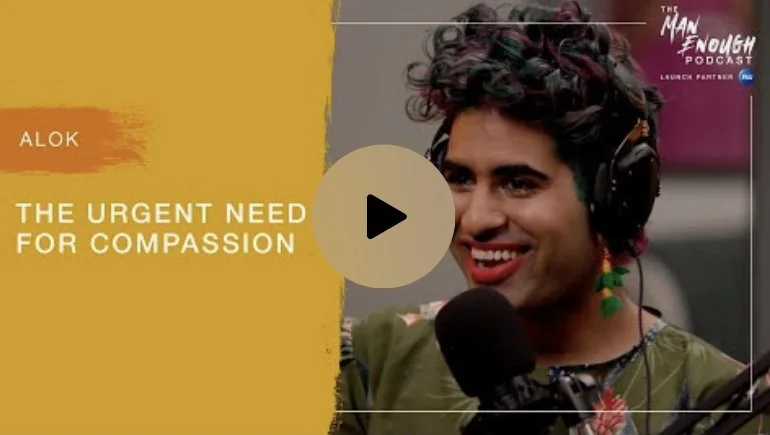
ALOK: The Urgent Need for Compassion
On The Man Enough Podcast: "Do you know who you are outside of who you have been told you should be? Acclaimed gender non-conforming writer, performer, and speaker, ALOK, shares their story, and the stories of those who came before them, with an urgency that invites us to step into our power and the power of interdependence."
Audio only version is also available on all podcast networks.
Also visit ALOK's website.
-

Crip Camp: A Disability Revolution
A documentary film: “In the early 1970s, teenagers with disabilities faced a future shaped by isolation, discrimination and institutionalization. Camp Jened, a ramshackle camp “for the handicapped” (a term no longer used) in the Catskills, exploded those confines. Jened was their freewheeling Utopia, a place with summertime sports, smoking and make-out sessions awaiting everyone, and campers experienced liberation and full inclusion as human beings.”
-
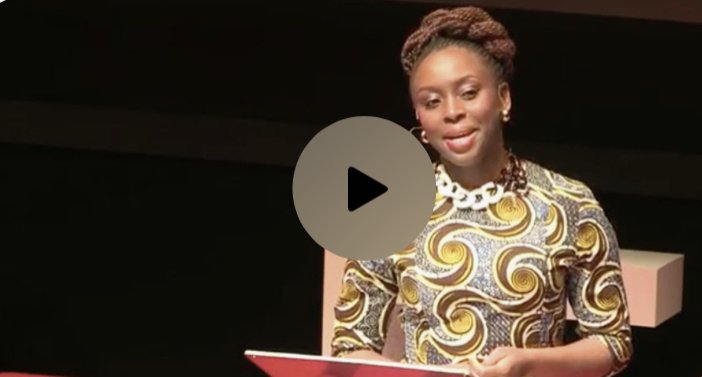
We Should All Be Feminists | Chimamanda Ngozi Adichie
“Chimamanda Ngozi Adichie a renowned Nigerian novelist was born in Nigeria in 1977. Her 2012 TEDx Euston talk We Should All Be Feminists started a worldwide conversation about feminism and was published as a book in 2014.”
Visit Chimamanda's website for more info.
We are anti-racist.
-

There is No Neutral | Michelle Cassandra Johnson
In this TedxWakeForestU talk: “Michelle Johnson discusses how she has combined her passion for social justice with her yoga and healing practice… She is interested in spiritual spaces that center activism and social change spaces that center spiritual practice. In 2013, Michelle created Skill in Action, a training program, focused on the intersection of social justice and yoga.” In 2017, she published Skill in Action the book.
Visit Michelle Cassandra Johnson's website for more about her book.
-

"white supremacy culture" by by Tema Okun
This piece explores the ways in which white supremacy shows up in our organizations. It reveals that much of what we think of as "normal" work culture is actually rooted in white supremacy ideals. It lists characteristics of white supremacy cultures and states examples on what they look like in action.
An updated more visual and deeper exploration of this original article can be found here.
-
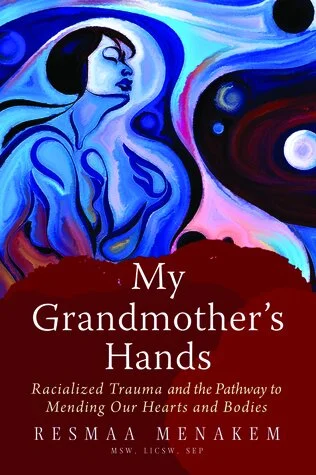
"My Grandmother’s Hands" by Resmaa Menakem
Read, listen to, sit with, and practice with the book.
The podcast On Being with Krista Tippett, "Notice the Rage; Notice the Silence" is a great intro to Resmaa Menakem and his work: “He is a Minneapolis-based therapist and trauma specialist who activates the wisdom of elders, and very new science, about how all of us carry in our bodies the history and traumas behind everything we collapse into the word race.”
Full work on Resmaa Menakem’s website.
-
Anti-Racism Daily (ARD)
Receive a daily or weekly newsletter plus podcasts, trainings, and more!
Full access to the ARD here: "The Anti-Racism Daily educates and mobilizes people to address racism and oppression in their communities and workplaces."
The article "Why Not Being Racist Isn’t Enough to Stop White Supremacy" is a great starting point.
We embrace all bodies here.
-

"The Body is Not an Apology" by Sonya Renee Taylor
This books speaks to the need for each of us to explore radical self love as a way to reconnect with the humanity in ourselves, in others, and even as a means by which to save the planet.
And it's not just a book. It's a movement.
-
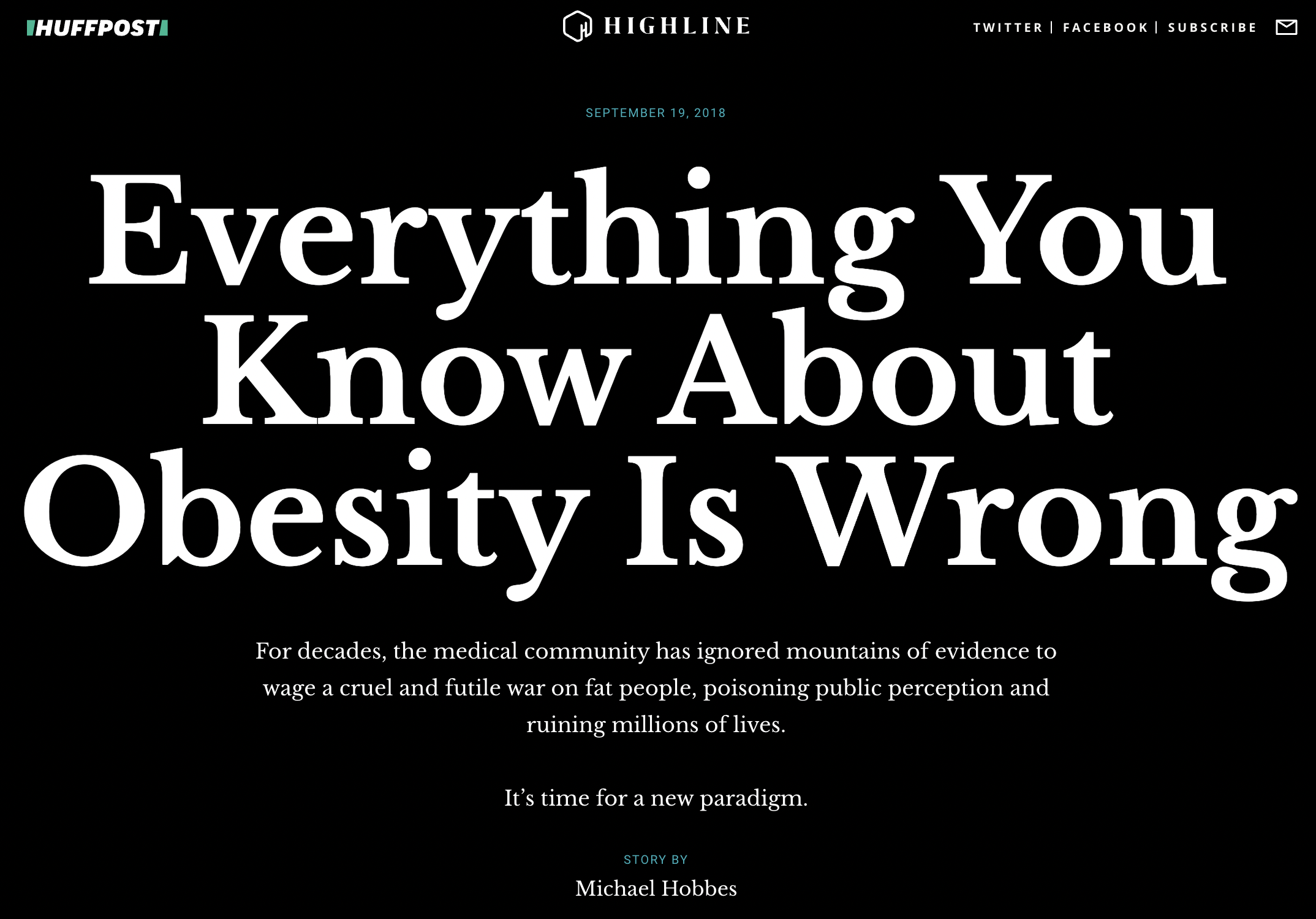
"Everything You Know About Obesity Is Wrong" by Michael Hobbes
This article addresses how obesity is not so much a health determinant, but rather the medical field ignoring concerns of obese people and blaming everything on weight is actually what causes larger people to have greater health issues.
We honor those who have shared resources, knowledge, and teachings with us.
-
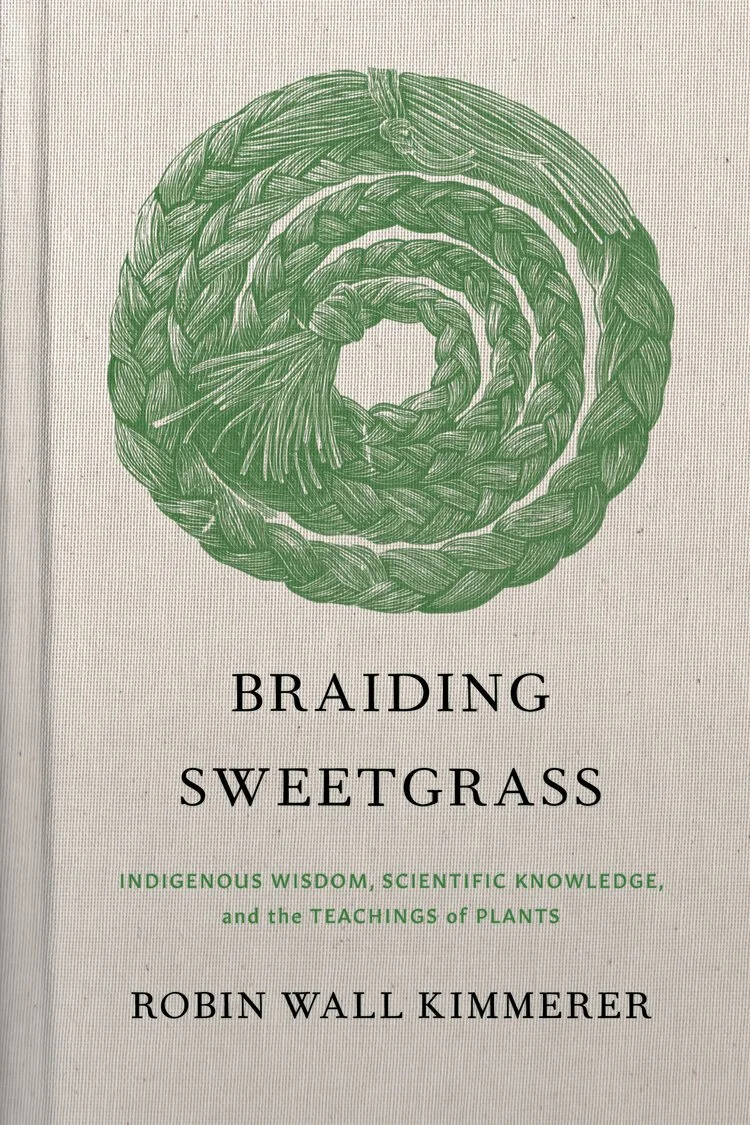
"Braiding Sweetgrass" by Robin Wall Kimmerer
About the book: “In a rich braid of reflections that range from the creation of Turtle Island to the forces that threaten its flourishing today, she circles toward a central argument: that the awakening of a wider ecological consciousness requires the acknowledgment and celebration of our reciprocal relationship with the rest of the living world. For only when we can hear the languages of other beings will we be capable of understanding the generosity of the earth, and learn to give our own gifts in return.”
